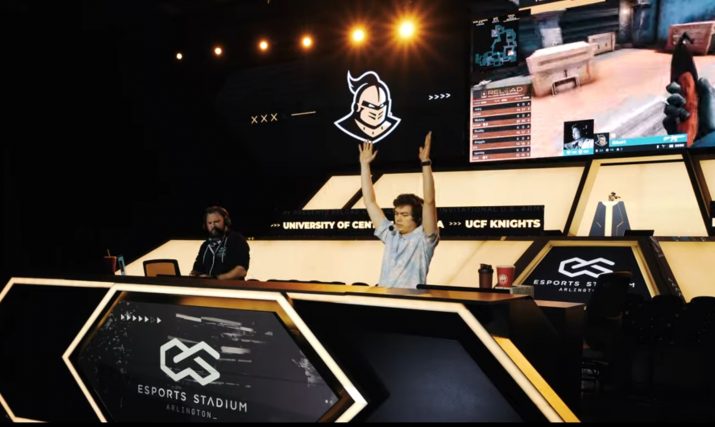Esports Stadium Arlington stays busy with shift to online tournaments
Opening in November 2018, Esports Stadium Arlington (ESA) has become a mecca for the gaming community, hosting a mix of high-profile and grassroots esports tournaments. However, with the in-venue event business on hold due to the coronavirus pandemic, North America’s largest dedicated esports facility has shifted its focus, returning to the online roots from which esports blossomed.
“Online events is really where esports originated and where broadcasting began on a regular basis,” said Esports Stadium Arlington chief creative officer Corey Dunn. “Our goal was to recapture that magic by changing how we were doing things without taking away from the quality of the broadcast.”

ESA’s Corey Dunn and Jonathan Oh served as casters for the Reload Collegiate CS:GO Invitational
ESA had been planning an in-person Counter Strike: Global Offensive collegiate tournament before the pandemic shut down live events. Rather than waving the white flag, ESA revamped the event for an online format and teamed up with the US Army to host the US Army Presents Reload Collegiate CS:GO Invitational. The 28-team online tournament streamed on the ESA Twitch channel 27 April 27 to 10 May and was produced by a skeleton crew composed entirely of ESA’s in-house production staff.
“We [had] teams from all over North America competing in an online tournament and we [were] doing it from a single location with very few staff members…and making things work,” said Dunn. “That just shows how much our team can adjust and adapt. Throughout the years, we’ve seen so many different types of things come our way and…we adapt and create something special. And now we have tons of buzz all across social media about how well this event [was] produced.”
Dunn and company used the facilities in Arlington to produce the event with just eight crew members onsite (social distancing and masks are enforced at all times inside the venue) — all of whom are ESA employees. By the end of the tournament, the ESA production team had delivered 126 hours and 100+ maps played over 14 days using the limited crew.
Click here to read the full story on SVG USA.
